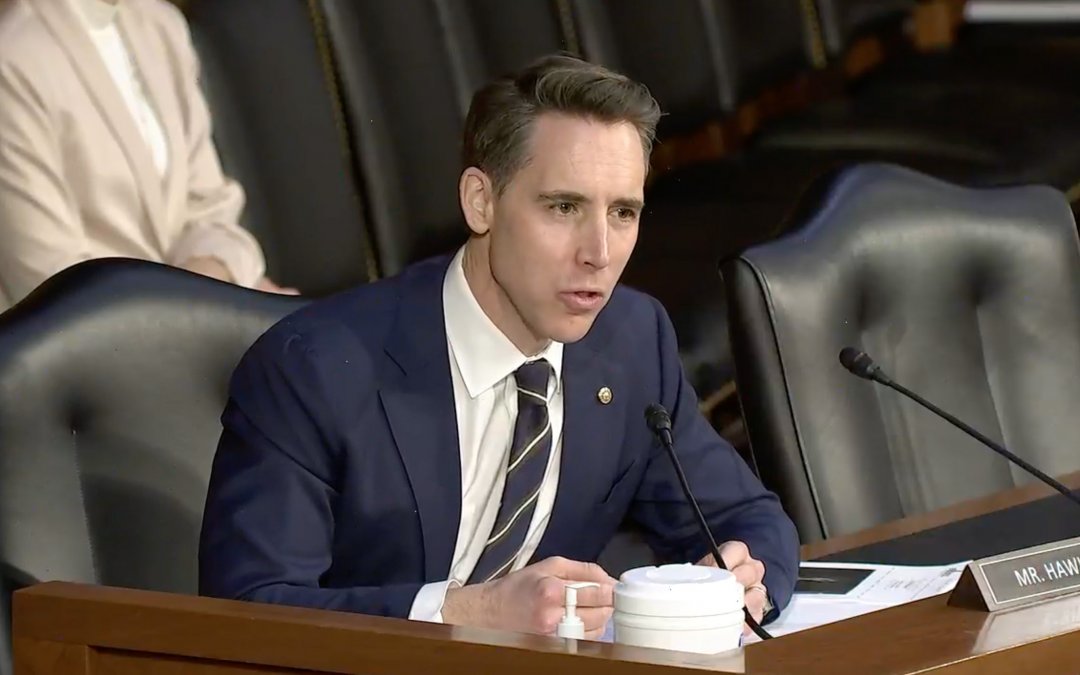WASHINGTON — Republican lawmakers Sens. Josh Hawley (R-Mo.) and John Kennedy (R-La.) called for stricter legislation limiting social media use for minors under 16 years old during a Senate Judiciary Committee hearing on Thursday.
The hearing, called “Protecting Our Children Online,” was led by Chairman Sen. Dick Durbin (D-Ill.) and examined “the challenge of ensuring online child safety and privacy.” It also discussed the potential dangers children face when using social media, such as cyberbully, harmful online challenges, sexual exploitation and the purchase of fentanyl-laced drugs.
“In the virtual world, criminals and bullies don’t need to pick a lock or wait outside the playground to hurt our kids. They only have to lurk in the shadows online of Facebook and Snapchat,” Durbin said in his opening statement.
The hearing followed Monday’s introduction of the Clean Slate for Kids Online Act by Sens. Dick Durbin (D-Ill.), Richard Blumenthal (D-Conn.) and Mazie Hirono (D-Hawaii). The Clean Slate for Kids Online Act would modify the Children’s Online Privacy Protection Act of 1998 and provide people with a “legal right to demand that internet companies delete all personal information that was collected from or about the person when he or she was a child under age 13.”
The movement to write stricter legislation regarding social media, particularly children’s use of social media, has been a bipartisan issue in recent years.
Durbin called this “an issue that keeps parents and children up at night,” and acknowledged Ranking Member Sen. Lindsey Graham’s (R-S.C.) previous work with social media when he led the Senate Judiciary Committee.
Witnesses like Kristin Bride, a survivor parent and social media reform advocate, and Emma Lembke, founder of the Log Off Movement, spoke about their personal experiences with the platforms.
“I speak before you today with the tremendous responsibility to represent the many other parents who have also lost their children to social media harms,” Bride said.
Bride’s son Carson died by suicide after his high school classmates cyberbullied him, and following his death, she learned that he had received “100 negative, harassing, sexually explicit, and humiliating messages, including 40 in just one day.” According to a 2022 Pew Research survey, 46% of U.S. teens ages 13 to 17 report experiencing some form of cyberbullying.
In her testimony, Bride said she wanted to “bring a face to the harms occurring every day resulting from the unchecked power of the social media industry.”
Lembke, who made her first social media account on Instagram when she was 12, spoke of how the platforms negatively impacted her sense of self and pushed her toward disordered eating. As a senior in high school, Lembke created the Log Off Movement to serve as a community “created by young people for young people to tackle the complexities of social media and its impact on younger generations,” she said in her written testimony.
Today, at 19, Lembke acknowledges that social media can strengthen people’s “connective, expressive, and exploratory capabilities,” despite its issues.
Recognizing the necessity of young voices, she said, “It is only when young people are given a place at the table that effective solutions can emerge and safer online spaces can be created.”
Despite bipartisan support, committee members, like Sen. John Cornyn (R-Texas), spoke about the difficulty of writing legislation.
“This has been one of the most frustrating and aggravating topics because it is hard for the Congress to pass new laws to keep up with the changes in technology,” Cornyn told Medill News Service.

